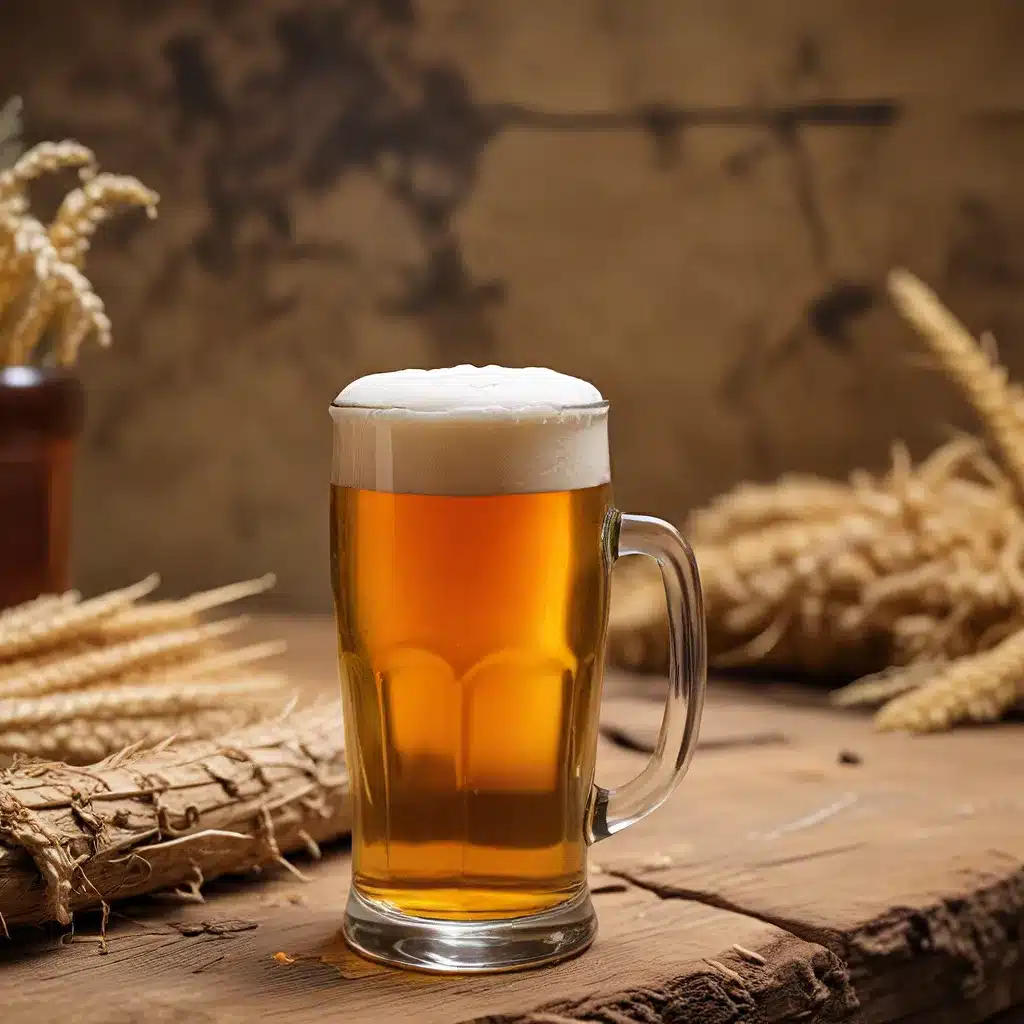
The Surprising Link Between Barley and Discovery
If you had told me a decade ago that beer – that frothy golden elixir often associated with frat parties and dad bods – played a profound role in shaping the course of human history, I probably would have laughed in your face. But as it turns out, the story of beer’s influence on global exploration and expansion is one of the most fascinating (and unexpected) tales you’ll ever hear.
Let’s rewind the clock a bit. Back in the day, when our ancestors were still hunter-gatherers roaming the Earth, one of the staple crops they cultivated was a little thing called barley. Now, barley on its own is fairly unremarkable – it’s a hardy cereal grain that’s been a dietary staple for millennia. But what our early human cousins discovered is that when you take barley, add water, and let it ferment, you get something much more interesting: beer.
The Up & Under Pub may not have existed back then, but the thirst for beer certainly did. And as it turns out, that thirst played a pivotal role in driving human civilization forward in ways we’re only now beginning to fully appreciate.
The Liquid Fuel of Exploration
Think about it – what do you need to power long-distance exploration and the expansion of empires? You need food, you need supplies, and you need a way to keep your crew happy, hydrated, and motivated. And as it turns out, good ol’ beer was the perfect solution.
Unlike water, which could be contaminated and make explorers sick, beer was a safe, reliable source of hydration. It provided crucial calories and nutrients. And perhaps most importantly, it kept morale high during those long, grueling voyages. As one historian put it, “Beer was the liquid fuel that powered the Age of Discovery.”
Take the legendary explorer Christopher Columbus, for example. When he set sail for the New World in 1492, his crew’s provisions included over 30 tons of beer. That’s right – an entire cargo hold dedicated to the stuff. And it’s not just Columbus – pretty much every major explorer from that era, from Magellan to Vasco da Gama, relied heavily on beer to keep their expeditions afloat.
A Taste for Adventure
But the story doesn’t end there. As these explorers ventured forth and encountered new lands, they didn’t just discover new routes and territories – they also discovered new ingredients for beer.
The Portuguese, for instance, encountered a little tropical fruit called hops during their travels. When they brought those hops back home and added them to their beer recipes, it completely transformed the flavor profile. Suddenly, beer tasted bolder, more aromatic, and more bitter – a far cry from the sweet, malty brews of old.
In a similar vein, the Dutch East India Company’s voyages to the East exposed them to a whole host of exotic spices that could be used to flavor beer. Coriander, cinnamon, nutmeg – these once-rare ingredients found their way into brewers’ kettles, giving rise to entirely new beer styles.
So not only was beer fueling exploration, but the exploration itself was fueling the evolution of beer. It was a mutually reinforcing cycle that helped drive human civilization forward in ways we’re still grappling with today.
Conquering the World, One Pint at a Time
But the influence of beer on global expansion doesn’t end there. As these explorers encountered new lands and peoples, they didn’t just exchange ingredients – they also exchanged cultures and traditions. And at the heart of many of those cultural exchanges was, you guessed it, beer.
Take the British Empire, for example. As they colonized distant corners of the globe, they didn’t just impose their language and government – they also imposed their beer. Wherever the Union Jack flew, you’d find British-style ales and porters taking root. And in many cases, those beers became integral parts of the local culture, evolving and adapting to local tastes and ingredients.
The same is true for the Spanish, the Dutch, the French, and countless other colonial powers. Beer became a powerful tool for cultural assimilation and the spread of Western influence. It was a shared language that bridged gaps between vastly different peoples and helped cement the dominance of the great empires of the past.
A Bittersweet Legacy
Of course, this legacy of beer-fueled exploration and expansion is not without its darker undertones. As these colonial powers imposed their beer (and their culture) on indigenous populations, they also brought devastation, displacement, and exploitation in their wake. The story of beer’s global influence is, in many ways, a bittersweet one – a tale of human ingenuity and discovery, but also of oppression and the erosion of local traditions.
But even so, the undeniable fact remains that beer played a pivotal role in shaping the modern world. From powering the voyages of discovery to fueling the rise of global empires, this humble fermented beverage has left an indelible mark on the course of human history.
And who knows – maybe the next great era of exploration and expansion will be fueled not by the thirst for conquest, but by the thirst for something even more fundamental: a perfectly crafted pint of beer.

